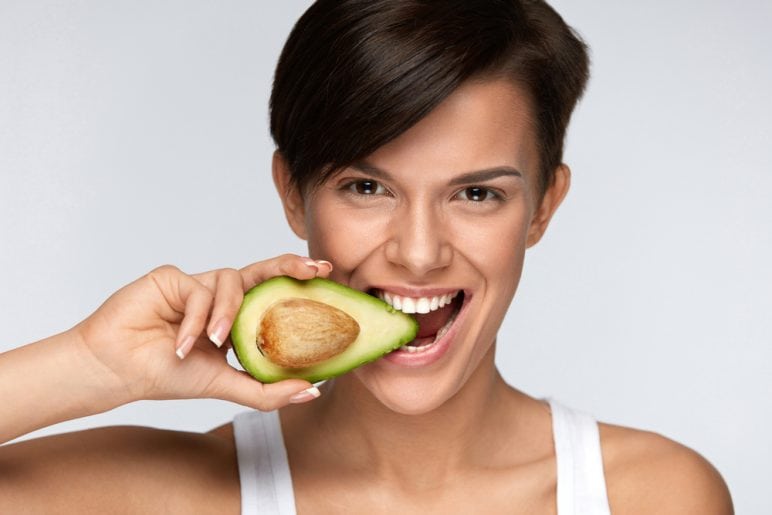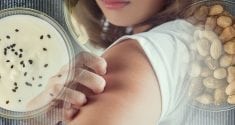Diet and Skin Health: Eating Your Way to Radiant Skin
There are many benefits to eating healthy, but recent research has linked diet and skin health, indicating the foods we eat affect our skin.
Your Dietary Practices May Influence the Condition of Your Skin
Crash diets, also known as fad diets, do more harm than good for a number of reasons. Primarily, they represent temporary fixes to a long-term problem. While you may lose the promised weight by adhering to the diet, you'll likely gain those pounds right back as soon as you go off the diet. How does this affect your skin? When you lose the weight, it leaves skin sagging. As you gain the weight back, your skin will again expand, causing wrinkles and stretch marks to appear.
A better alternative to promote a healthier state and better skin is to adopt permanent lifestyle changes. Adopt a healthier lifestyle, including a diet that focuses on healthy proteins like chicken, fish and legumes and a variety of fresh fruits and vegetables. This will aid in weight loss and benefit your metabolism, so it will be easier to keep those pounds off.
Some people worry that they won't get enough to eat when they alter their eating habits this way. However, nutritionists recommend eating at least five portions of fruits and vegetables each day to reap the maximum amount of benefits. In addition to large supplies of vitamins and minerals, plant-based foods are also excellent sources of antioxidants. One of the most important functions of antioxidants is that they fight free radicals in the body, which are responsible for promoting wrinkles, age spots and other skin blemishes.
Some Foods to Promote a Better Diet and Skin Health
Here are just a few foods that are healthy for the body and can help improve the condition of your skin. While these aren't the only natural foods that can benefit your skin, they make a good start and show that there's plenty variety from which to choose.
Fatty Fish
Although many fatty foods can have a negative impact on skin health, fatty fish has the opposite effect. Sardines, herring and salmon are just some of the cold-water fish rich in omega-3 fatty acids, which has been found to have many benefits on human health. For the skin, it can significantly reduce the chances of developing non-melanoma skin cancers. Ultraviolet (UV) radiation causes damage to skin cells, as well as contributing to inflammation and immunosuppression, but the omega-3 fatty acids help to negate that effect on the skin.
Walnuts
 Much like cold-water fish, walnuts are also rich in omega-3 fatty acids, but they also contain high levels of omega-6 unsaturated fatty acids. These acids work to reduce specific types of inflammation, including that which causes skin conditions, like eczema and psoriasis. It's estimated that nearly 99 percent of Americans lack sufficient fatty acids in their diets.
Much like cold-water fish, walnuts are also rich in omega-3 fatty acids, but they also contain high levels of omega-6 unsaturated fatty acids. These acids work to reduce specific types of inflammation, including that which causes skin conditions, like eczema and psoriasis. It's estimated that nearly 99 percent of Americans lack sufficient fatty acids in their diets.
Almonds
These nuts are also high in essential fatty acids. Additionally, they deliver high concentrations of vitamin E, a nutrient essential to healthy skin. They also contain antioxidants, helping to reduce inflammation in the skin cells.
Flax Seeds
Flax seeds are high in a specific type of omega-3 fatty acid, which is known as alpha-linolenic acid (ALA). This compound can help maintain healthy skin. In one study, researchers gave women with sensitive skin regular doses of flaxseed oil over a three-month period. By the end of the study, the women experienced less roughness and scaling of the skin, less skin sensitivity, improved hydration and smoother skin.
Avocado
This natural food helps the skin in a number of ways. As a high source of healthy fats and vitamin E, it protects and nourishes the skin. The fats found in avocados are necessary to the body, but are not produced naturally in sufficient quantities, so eating foods rich in healthy fats is necessary. Additionally, avocados contain lutein and zeaxanthin, compounds that help the body fight off the visible effects of UV damage.
Fun Foods for Healthier Skin
If you're looking for more ways to improve your diet and skin health, try some of these selections. Here, there are some more enjoyable ways to eat healthy and protect your skin.
Red Wine
As red wine is produced, it's infused with resveratrol, which is a naturally occurring compound found in the skin of the grapes. While resveratrol delivers a host of health benefits, it has become most popular for its ability to reduce the effects of the aging process. Additionally, red wine contains the antioxidants necessary for fighting free radicals and, in that way, the aging process is inhibited and skin cell damage is reduced.
Dark Chocolate
 We already know that dark chocolate contains antioxidants, which attack the free radicals in the body. A study found that eating regular servings of cocoa powder over a three-month period benefited test subjects by helping them develop thicker and more hydrated skin. The researchers also found that the test subjects were less likely to suffer sunburn because they had better blood flow.
We already know that dark chocolate contains antioxidants, which attack the free radicals in the body. A study found that eating regular servings of cocoa powder over a three-month period benefited test subjects by helping them develop thicker and more hydrated skin. The researchers also found that the test subjects were less likely to suffer sunburn because they had better blood flow.
Sweet Potatoes
This delicious and natural food is a high source of beta carotene, which works as a natural sun block. By eating foods rich in beta carotene, you can reduce your risk of sunburn and of developing some types of skin cancer. The nutrient may also protect your skin from wrinkling and sun spots.
By eating a wide range of natural foods, you can raise the levels of vitamins and antioxidants in your body. To ensure that you're getting the necessary vitamins, minerals and nutrients for skin health, you may also consider supplementing your diet with a high-quality natural formula like Dermachron. This will help you to lose weight and live healthier, as well as giving your skin a smoother and more youthful appearance. In short, practicing good eating habits can benefit your body on the outside, as well as on the inside.





